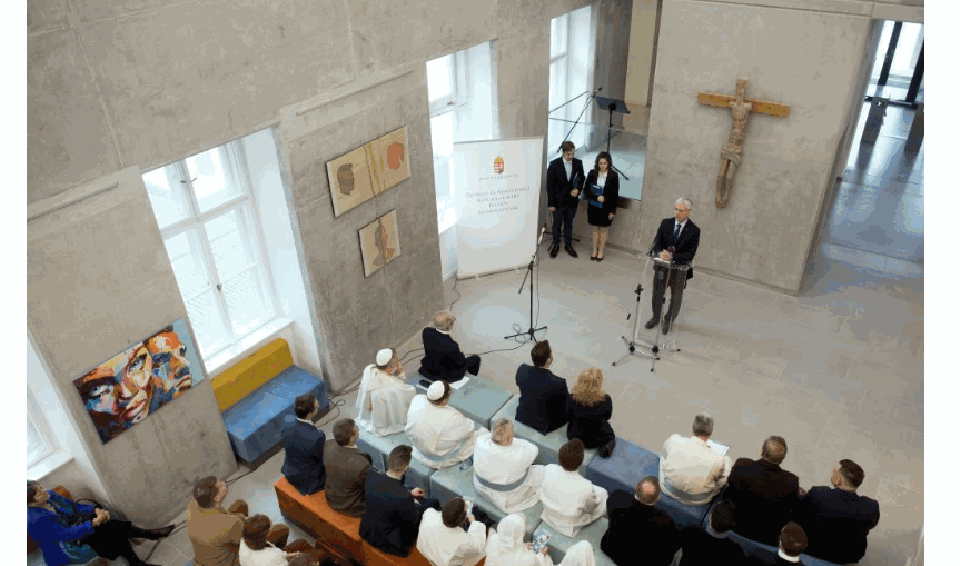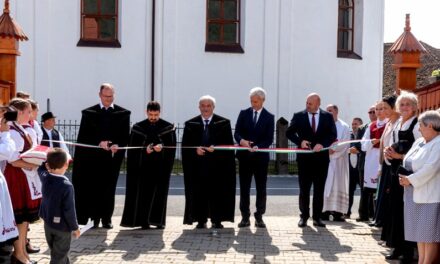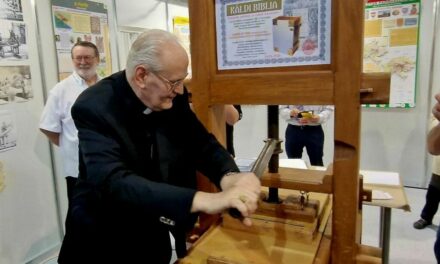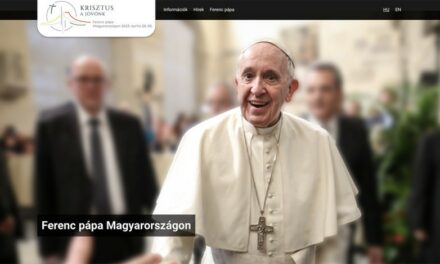"The state will take over the maintenance of the non-state schools and the student homes connected to them, as well as the kindergartens, which are in existence at the time this law enters into force - with the exception of educational institutions serving exclusively church purposes (faculty of religious studies, deacon and deaconess training, etc.)" - reads the statement on the nationalization of non-state schools XXXIII of 1948 in the first paragraph of the law. The demoralizing effect of the law destroyed Hungarian society for decades. Although the system change was an opportunity for church schools and kindergartens, it was not until 2010, when a conservative national government was formed, that church education regained its old strength, reputation and shine.
The number of church schools in our country is increasing every year. While, for example, churches operated 197 elementary schools and 108 high schools in the 2010/2011 academic year, this number reached 529 and 241 by 2019, respectively. The situation is similar for kindergartens: ten years ago, there were still 141 church-maintained kindergartens, and nine years later there were 366.
Not only the number of institutions is constantly increasing, but also the number of pupils and kindergarten students. What is the secret of these institutions, how is it possible that their popularity is increasing day by day?
Church schools were the primary enemies of the pro-state dictatorship, organized on the Soviet model, striving for totalitarian rule. In the spirit of this, on June 16, 1948, the National Assembly accepted the plan to nationalize these schools with one stroke of a pen. After the regime change, in 1989, among the churches, the Evangelicals were the first to receive back the Fasori Evangelical High School for educational purposes. After that, many denominations also got back their educational institutions that were taken away forty years ago. After the long decades of the dictatorship, the churches not only restarted their schools, but also re-created the religious and worldview spirit of the institutions through persistent and committed teachers, pastors and priests. However, the real breakthrough had to wait until 2010, when the second Orbán government was formed.
Over the past twelve years, the Orbán cabinet has renovated and handed over buildings to historic churches across the country. The organization of the modernly renovated, spacious rooms and the selected teaching staff is the result of serious and lengthy work. Accordingly, at first only religious parents enrolled their children in the local, church-based kindergarten-school, and then, as the good reputation of these institutions spread, more and more families - who did not always practice their religion strictly - decided to go to the local, religious institutions.
This is how it became possible for a new generation to grow up for the first time in Hungarian history after 1948, which not only inherits patriotism, ideology and tradition, but also learns what it is like to grow up in a real, accepting, humane community.
The revival of scout movements serves the same spirit. This kind of acceptance - which the liberal media tries to appropriate at all costs - can help a lot of young people who are struggling with learning or integration difficulties. In church schools, in most cases they see an opportunity and not a problem in the more lively, today considered hyperactive, sensible and otherwise well-functioning children.
They think in a community, in such a way that at the same time the individual abilities of the students are taken into account. In contrast to many foundation schools with a progressive spirit, the requirements are of a high standard, and the principle of "the palm tree grows under the burden" applies, but at the same time there is also encouragement and a focus on strengths.
Just like the morning devotion and prayer, the common services and masses also serve a single purpose in these institutions: to realize that we are imperfect, but we can always turn to the Lord. It is hoped that all of this will become natural for the children who attend church school and will be something to hold on to in their later lives.
Source: Vasarnap.hu
Author: Anna Kismarty
Photo: Szilárd Koszticsák (Cover photo: Miklós Soltész, the Prime Minister's Secretary of State responsible for church and ethnic relations gives a speech at the inauguration of the renovated and expanded Saint John the Baptist School Center in Zsámbék on January 22, 2020).












